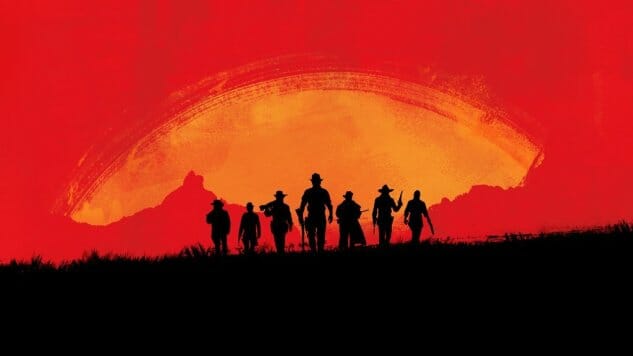10 Unconventional Westerns That Should Influence Red Dead Redemption 2

It’s hard to overstate the impact that Red Dead Redemption had on a certain type of film lover. There had been Western games before. I remember Sunset Riders kicking me and my cousins’ asses on the SNES when I was a little kid, and before that Gun.Smoke was an arcade and NES hit. The PS2 had GUN and Red Dead Revolver, and the original Call of Juarez had given hints of what a then current-gen console Western could look like, but nothing prepared us for Red Dead Redemption.
It was a John Ford fantasy brought to life. The romantic sweep of the great plains, the deserts of the US/Mexican border, and the last gasp of the Wild West were brought to sprawling, immaculately detailed life. Throw in Rockstar’s story about a man trying to atone for a past of black hat crime, and Redemption cemented a legacy as videogame culture’s great link to the old West.
With the announcement of Red Dead Redemption 2 earlier this year, we thought about what Western influences the new game could draw from. The original was deeply indebted to the filmographies of John Ford and Sergio Leone. If the plains segments were an ode to Ford’s beloved “oaters,” everything in Mexico was pure Leone Spaghetti Western. And if Rockstar doesn’t want to repeat themselves with the new game, here’s a list of unexpected Westerns that they can look to for inspiration to tell a new type of old West adventure.
Lonesome Dove
The big selling point of Red Dead Redemption 2’s reveal was an image Rockstar posted of a timer with the silhouettes of seven men walking in front of a sunset. The implication there is that Red Dead Redemption 2 will have an ensemble cast ala Grand Theft Auto V. If that’s the case, Rockstar need look no further than the television miniseries of Larry McMurtry’s Western epic, Lonesome Dove, to see how Old West ensemble storytelling can be done right. And if Rockstar can come up with one character half as memorable as Robert Duvall’s Augustus McCrae, the game could be a real success. Let’s just hope we don’t have to play as any Jake Spoon equivalent. That might sour things a bit.
The Man Who Shot Liberty Valance
Perhaps the most powerful narrative decision Red Dead Redemption makes is the precise timeframe when you play. Most of the game intentionally plays with the image of an 1870s/1880s sandbox of the mythic West, but instead, the game takes place in 1911 in the years before the Great War. The West is disappearing, and everything you’ve done throughout the game represents the dying breaths of a whole culture.
We said that Rockstar needs to look to new inspirations for Red Dead and we’re aware Liberty Valance is arguably Ford’s masterpiece (the other choice is The Searchers), but if the second game wants to continue exploring the end of the Western era, Ford’s meditation on the need for law and the inevitable dissolution of the anarchic old West is the perfect story to study. Plus, there are few cinematic treats quite like having John Wayne, James Stewart and Lee Marvin engage in a two hour pissin’ match about who’s the real man in their dusty town of Shinbone.
The Assassination of Jesse James by the Coward Robert Ford
Although there’s an omnipresent concentration on wacky humor and over-the-top action setpieces, Rockstar’s big tenthouse games have always tried to say something. GTA IV attempted to chronicle the immigrant experience of the American Dream. The original Redemption examines the price we’re willing to pay to atone for past sins. But GTA V was a major stumbling block in the Rockstar storytelling department with a narrative that mistook gleeful cruelty for anything resembling thematic depth.
If Rockstar wants to deliver another anti-hero/anti-villain tale in the new game, Andrew Dominik’s anti-Western magnum opus is the key to how to tell that story right. It chronicles Robert Ford, the man who killed Jesse James despite being part of his gang, and it’s a harrowing look at guilt, responsibility, and why we do what we do. If Rockstar wants to make a truly great story, this sort of moral clarity is a necessary first step.
Brokeback Mountain
Representation matters in games, and Rockstar has a miserable track record with queer representation. GTA V in particular had a disturbing amount of transphobic and queerphobic “jokes.” With a cast as big as Rockstar is promising, Red Dead Redemption 2 needs queer characters, and there’s no better text on how to integrate queerness into the Romantic landscapes of the West than Ang Lee’s film version of Annie Proulx’s short story Brokeback Mountain (a script that was co-written by Diana Ossana and Lonesome Dove’s Larry McMurtry).









